How to Make It: Gen Z and the Legal Profession, Part 4 — Retaining Talent: How Big Law, Young Lawyers, and Legal Tech Come Together
If you're not doing right by your lawyers, there's never been a better time to open your own law firm.
September 27, 2022 at 03:33 PM
5 minute read
How I Made ItBig Law, Generation Z, and Legal Technology — A Conversation With Joshua Lenon of Clio
Joshua Lenon Interview — Part 4
How do Big Law, new young lawyers, and improvements in legal technology all come together? Is there a Venn diagram showing where they meet?
I absolutely think there is. It's cliché, but oftentimes when there's a technology issue, we see the stereotype of the older lawyer asking the younger lawyer how to do these things. But a lot of the improvements that can be made in law firms and the provision of legal services are things that have been adopted by other businesses, by other industries, by the clients that these law firms are servicing. They are a common everyday experience for younger lawyers.
An example would be booking an appointment with a professional online. I can book an appointment with my doctor via their website. Same with a dentist. Same with an accountant, right? But a lot of law firms don't give that agency to the client.
Younger lawyers who are utilizing these changes in client experience are better positioned in a law firm to spot these opportunities and help position them in a way that is both in the interest of the client and the law firm. I want to stress that second one because legal technology is a bit unique in that we really do have to balance several duties. The duty to the client, the duty as an officer of the court, the duty as an advocate to the rule of law, being a partner within a law firm, and the unique legal responsibility of partners to each other that don't always exist in other businesses. Law firms have to balance all of that, and legal technology allows these younger lawyers with their lived experience and their expertise to bring the right technology together and help the partners enable them for existing clients and existing legal services.
So the Venn diagram is very much overlapping between those three things. But it will take buy-in from all sides on how to bring that together.
At Clio, we've seen that as we work with law firms, we have to engage a whole variety of stakeholders within the law firm itself to make sure we're the right fit. For example, we have a chat bot feature built right into Clio manager, and so if you're a Gen Z lawyer and you've got a question about a feature, you can just type a quick chat bot question. It'll pull up a video or an article, or ask if you want to speak to a customer representative. And that's very much a Gen Z self-help workflow.
Whereas for lawyers of a different generation, their first response is "I'm going to call somebody," and that's why we have an 800 number and live support.
How much of this needs to be lawyer to lawyer? Is there a "you can't understand what I mean" mentality coming from older attorneys?
It does exist, but I don't think it's as widespread as everybody thinks.
Does legal technology need to enter a law firm via a lawyer? Yes, 100% yes, but that's in part the unique structure of law firms, where the final veto is always the lawyer.
If the managing partner says no, there's no way around that. And the junior attorneys and the IT administrators and the office managers all ultimately answer to the law firm partners, right? That unique structure means that the lawyers always have to be both an advocate and an adopter of legal technology.
Now, is it the case that they can only learn from lawyers? I think the answer to that is 100% "No." So legal tech has to come through the lawyers, but they don't have to learn from lawyers. I think one of Clio's amazing insights is that the legal profession can learn from outside best practices, but often needs the examples to be couched in something that they understand.
What else is important to know that we don't always talk about?
I think one of the things that we don't always talk about when it comes to law firms and retaining talent is how easy it is to open a law firm.
If you're not doing right by your lawyers, there's never been a better time to open your own law firm. If you think about it, you don't have to have an office anymore. You can start your law firm without having real estate. You don't have to invest in a huge amount of technology. A really difficult part for young law firms was they would bootstrap and then once things became too much then they would invest in technology. Now I can start my practice management for like 60 bucks as opposed to: go out and hire an IT guy, buy a server, have a place to put that server, then go to somebody like Thomson Reuters and pay them $20,000 for software that's already out of date and doesn't come with support. So, opening a law firm in the past was very capital-intensive, and opening a law firm now is a weekend project.
So, if you're really concerned about the generational health of your law firm, making sure that the law firm continues to service clients for the entirety of their legal needs, that we're building a lasting foundation that will benefit the rising lawyers, as well as the existing partners well into the future, then I need to understand that if I'm not doing right by my employees, they can just go and do right by themselves.
For more career advancement advice and success stories, check out the "How I Made It" Q&A and "How to Make It" series on Law.com.
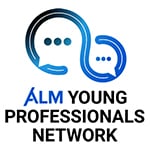 ALM's Professionals Network on LinkedIn, Advancing Future Leaders. We are excited about this pivotal group. Click here to join.
ALM's Professionals Network on LinkedIn, Advancing Future Leaders. We are excited about this pivotal group. Click here to join.
NOT FOR REPRINT
© 2025 ALM Global, LLC, All Rights Reserved. Request academic re-use from www.copyright.com. All other uses, submit a request to [email protected]. For more information visit Asset & Logo Licensing.
You Might Like
View All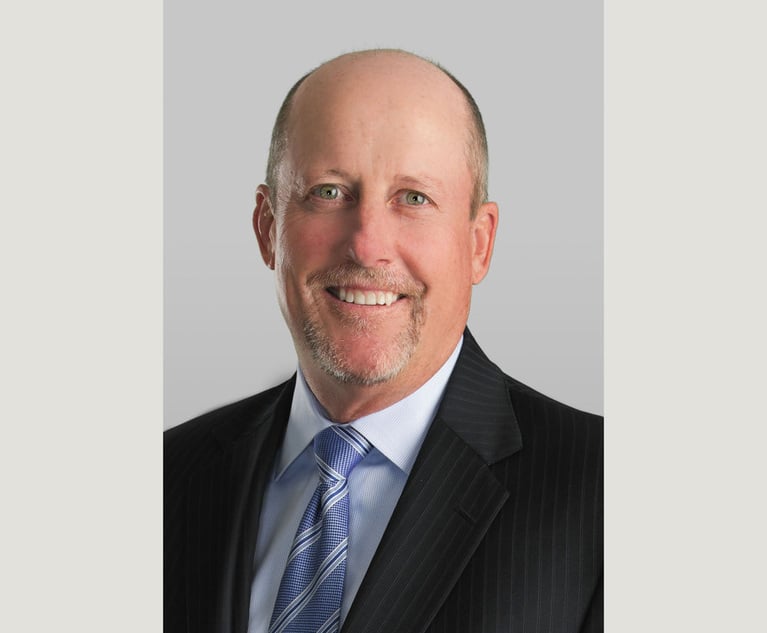
How I Made Managing Partner: 'Be the Uniting Voice of the Firm,' Says George Ogilvie of McDonald Carano
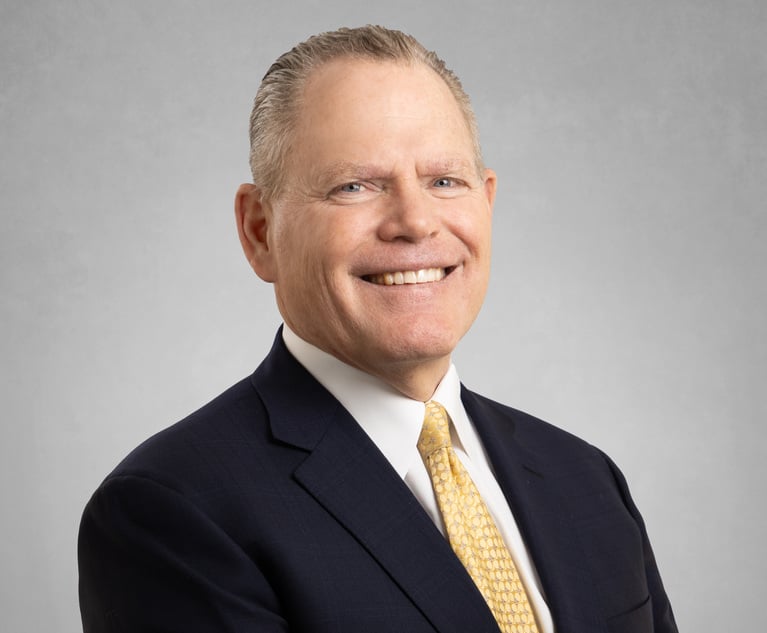
How I Made Managing Partner: 'Educate Yourself About Law Firm Economics,' Says Gregory Hessinger of Mitchell Silberberg
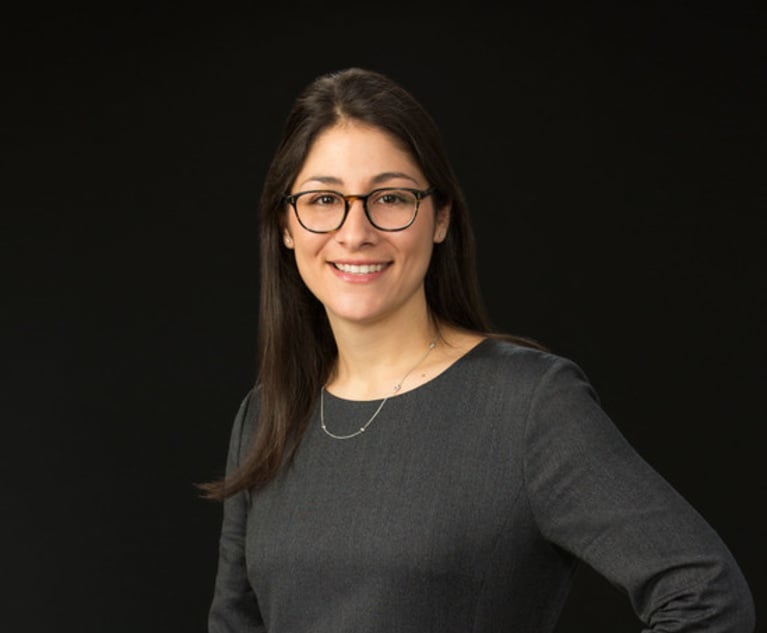
How I Made Partner: 'Focus on Being the Best Advocate for Clients,' Says Lauren Reichardt of Cooley
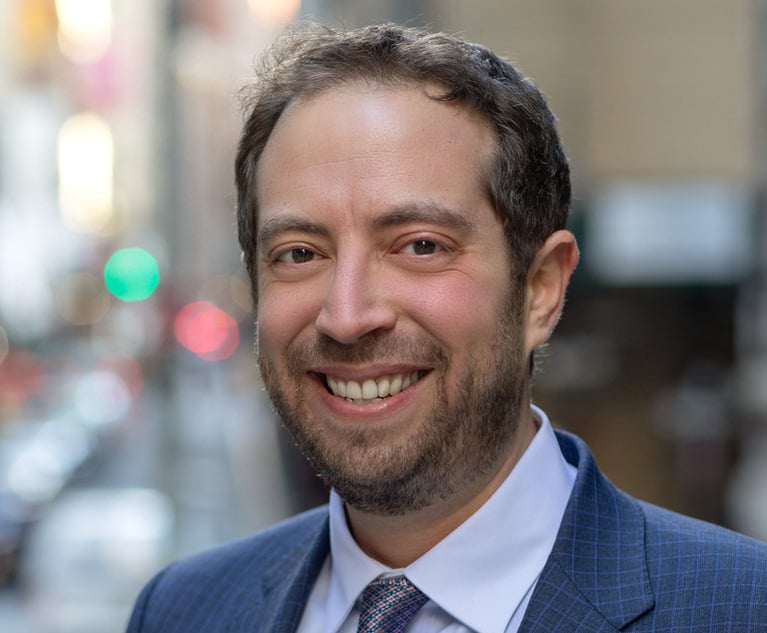
How I Made Practice Group Leader: 'It’s a Job About People, First and Foremost,' Says Alexander Lees of Milbank
Trending Stories
- 1Uber Files RICO Suit Against Plaintiff-Side Firms Alleging Fraudulent Injury Claims
- 2The Law Firm Disrupted: Scrutinizing the Elephant More Than the Mouse
- 3Inherent Diminished Value Damages Unavailable to 3rd-Party Claimants, Court Says
- 4Pa. Defense Firm Sued by Client Over Ex-Eagles Player's $43.5M Med Mal Win
- 5Losses Mount at Morris Manning, but Departing Ex-Chair Stays Bullish About His Old Firm's Future
Who Got The Work
J. Brugh Lower of Gibbons has entered an appearance for industrial equipment supplier Devco Corporation in a pending trademark infringement lawsuit. The suit, accusing the defendant of selling knock-off Graco products, was filed Dec. 18 in New Jersey District Court by Rivkin Radler on behalf of Graco Inc. and Graco Minnesota. The case, assigned to U.S. District Judge Zahid N. Quraishi, is 3:24-cv-11294, Graco Inc. et al v. Devco Corporation.
Who Got The Work
Rebecca Maller-Stein and Kent A. Yalowitz of Arnold & Porter Kaye Scholer have entered their appearances for Hanaco Venture Capital and its executives, Lior Prosor and David Frankel, in a pending securities lawsuit. The action, filed on Dec. 24 in New York Southern District Court by Zell, Aron & Co. on behalf of Goldeneye Advisors, accuses the defendants of negligently and fraudulently managing the plaintiff's $1 million investment. The case, assigned to U.S. District Judge Vernon S. Broderick, is 1:24-cv-09918, Goldeneye Advisors, LLC v. Hanaco Venture Capital, Ltd. et al.
Who Got The Work
Attorneys from A&O Shearman has stepped in as defense counsel for Toronto-Dominion Bank and other defendants in a pending securities class action. The suit, filed Dec. 11 in New York Southern District Court by Bleichmar Fonti & Auld, accuses the defendants of concealing the bank's 'pervasive' deficiencies in regards to its compliance with the Bank Secrecy Act and the quality of its anti-money laundering controls. The case, assigned to U.S. District Judge Arun Subramanian, is 1:24-cv-09445, Gonzalez v. The Toronto-Dominion Bank et al.
Who Got The Work
Crown Castle International, a Pennsylvania company providing shared communications infrastructure, has turned to Luke D. Wolf of Gordon Rees Scully Mansukhani to fend off a pending breach-of-contract lawsuit. The court action, filed Nov. 25 in Michigan Eastern District Court by Hooper Hathaway PC on behalf of The Town Residences LLC, accuses Crown Castle of failing to transfer approximately $30,000 in utility payments from T-Mobile in breach of a roof-top lease and assignment agreement. The case, assigned to U.S. District Judge Susan K. Declercq, is 2:24-cv-13131, The Town Residences LLC v. T-Mobile US, Inc. et al.
Who Got The Work
Wilfred P. Coronato and Daniel M. Schwartz of McCarter & English have stepped in as defense counsel to Electrolux Home Products Inc. in a pending product liability lawsuit. The court action, filed Nov. 26 in New York Eastern District Court by Poulos Lopiccolo PC and Nagel Rice LLP on behalf of David Stern, alleges that the defendant's refrigerators’ drawers and shelving repeatedly break and fall apart within months after purchase. The case, assigned to U.S. District Judge Joan M. Azrack, is 2:24-cv-08204, Stern v. Electrolux Home Products, Inc.
Featured Firms
Law Offices of Gary Martin Hays & Associates, P.C.
(470) 294-1674
Law Offices of Mark E. Salomone
(857) 444-6468
Smith & Hassler
(713) 739-1250









